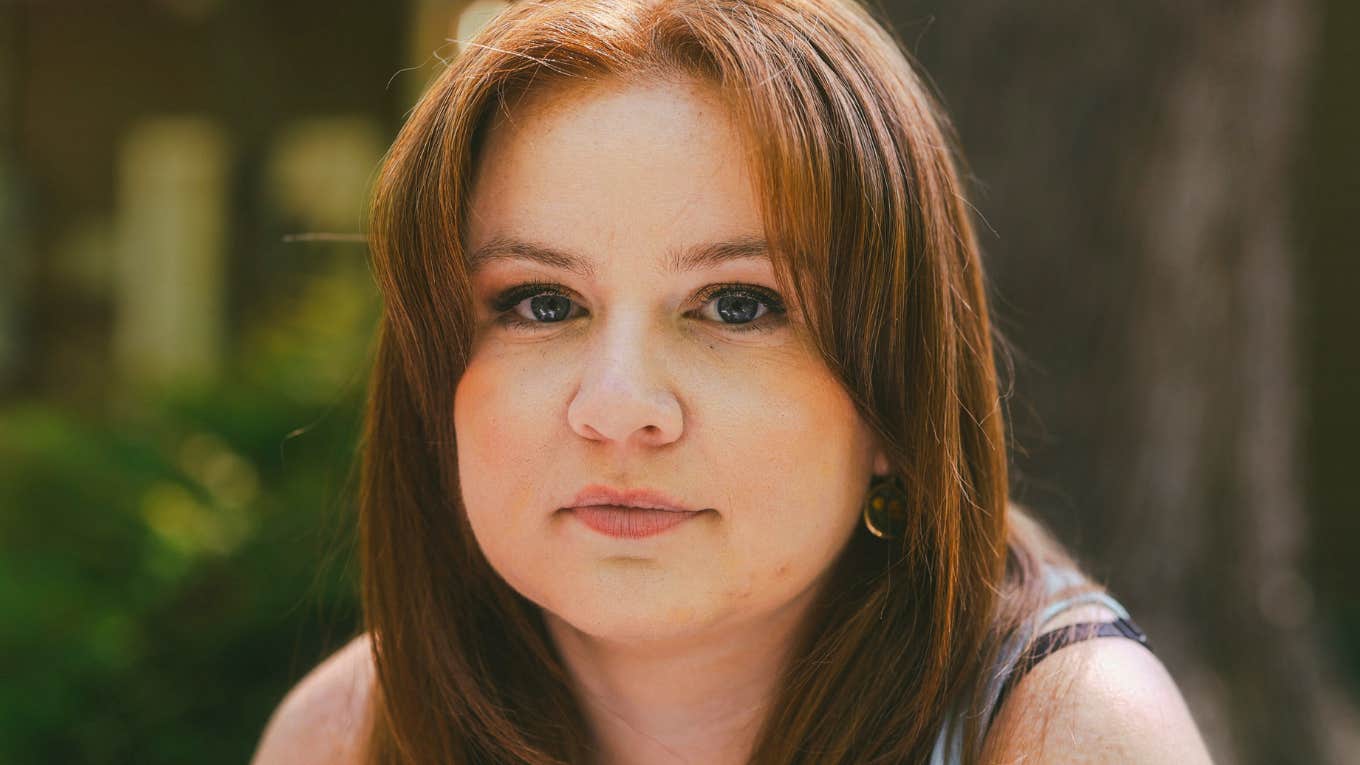If You Heard These 3 Phrases Growing Up, You Were Probably Raised By Passive-Aggressive Parents
These phrases sounded innocent at time, but they were loaded with passive-aggression.
 Brooke Balentine | Canva
Brooke Balentine | Canva Every family has anger. It’s unavoidable in life and a family, simply because it is wired into our brains. Find me a family that believes it has no anger in it, and I’ll dig out their anger and show it to them.
There are many ways that families can handle anger, depending on how comfortable they are with the emotion and, of course, the origins of the anger. Parents sometimes wield anger as a weapon, figuratively hitting each other over the head with it.
They also might hide it or ignore it and pretend it does not exist — that's passive-aggressive parents to a T. But here's the thing about anger — when hidden beneath the surface of a relationship, it often goes hand-in-hand with passive-aggressive behavior.
Left unexamined and unchecked, simmering anger can lead to a passive-aggressive family environment for kids that leaves emotional scars for a lifetime. If channeled in an unproductive direction, though, unexpressed anger can become fuel for passive-aggressive behavior.
If you heard these three phrases growing up, you were probably raised by passive-aggressive parents:
1. 'Speak up if you want to be heard'
In this family, anger is used by one or more members as a source of power. Anger may be expressed in a variety of aggressive ways, such as yelling, insults, or barbed comments; by throwing things, breaking things, or other physical intimidation or threats.
The lesson children learn from passive-aggressive parents: The angriest person wins. According to a 2024 study, in families with passive-aggressive dynamics, anger may be used as a tool for control, leading to a climate where open and healthy expression of emotions is suppressed. This can manifest as deliberately forgetting tasks, procrastinating, making sarcastic remarks, or using silent treatment to express anger or resentment.
2. 'Let's not talk about it'
 fizkes / Shutterstock
fizkes / Shutterstock
This family views anger as unacceptable or even bad. Angry feelings are viewed as unloving, uncaring, or rebellious, and are met with negativity or punishment.
The lesson children learn from passive-aggressive parents: Anger is bad. If you feel angry, you are bad. Do not talk about it.
3. 'Don't even bother getting angry about it'
This family treats anger as if it doesn’t exist. When a member of the family shows anger, it receives little reaction. Anger is invisible.
The lesson children learn from passive-aggressive parents: Anger is useless. Don’t bother with it. Do not talk about it. Direct expression of anger is often discouraged or punished, leading individuals to develop passive-aggressive behaviors as a way to cope with or express their anger indirectly. Psychologists emphasize the importance of recognizing and addressing passive-aggressive behaviors and learning healthy ways to express anger and resolve conflict.
None of the children growing up in these three types of families has an opportunity to learn much about anger: How to listen to its message, manage it, express it, or use it healthily. By definition, all of these children are growing up in emotionally neglectful families.
But let's focus in particular on the "underground" and the "ignoring" families. These two family types are similar in that all of the children growing up in them are receiving this message: When something upsets you, don’t talk. That’s what makes both types of families breeding grounds for passive-aggressive behavior.
Because anger is wired into the human brain, it exists in every human being. When you are in an environment that is chronically intolerant of this particular emotion, you naturally, automatically suppress your angry feelings whenever they arise.
Pushing anger down is like pushing water down. It has to go somewhere. So it may seep underground and sit there, or it may go slightly under the surface, and ripple and roil, waiting for a chance to erupt.
In these two types of anger-intolerant families, the anger goes underground, but it does not disappear. It stays there. And it has to come out somehow, sometime, in some way, and probably directed at someone.
A 2016 study on parental conflict's effect on children showed that kids who grew up in an environment of indirectly expressed, unresolved hostility are more insecure and take less responsibility for their problems. They are also more prone to depression, anxiety, and social withdrawal.
Another difficult aspect of passive aggression is that most people are completely unaware of their passive-aggressive behavior. They are often, also unaware of their own underground anger and the resentment that’s fueling it.
Jonice Webb, Ph.D., is a licensed psychologist and best-selling author of two self-help books. She specializes in childhood emotional neglect, relationships, communication issues, and mental health. Dr. Webb has appeared on CBS News and NPR, and her work has been cited by many publications.

